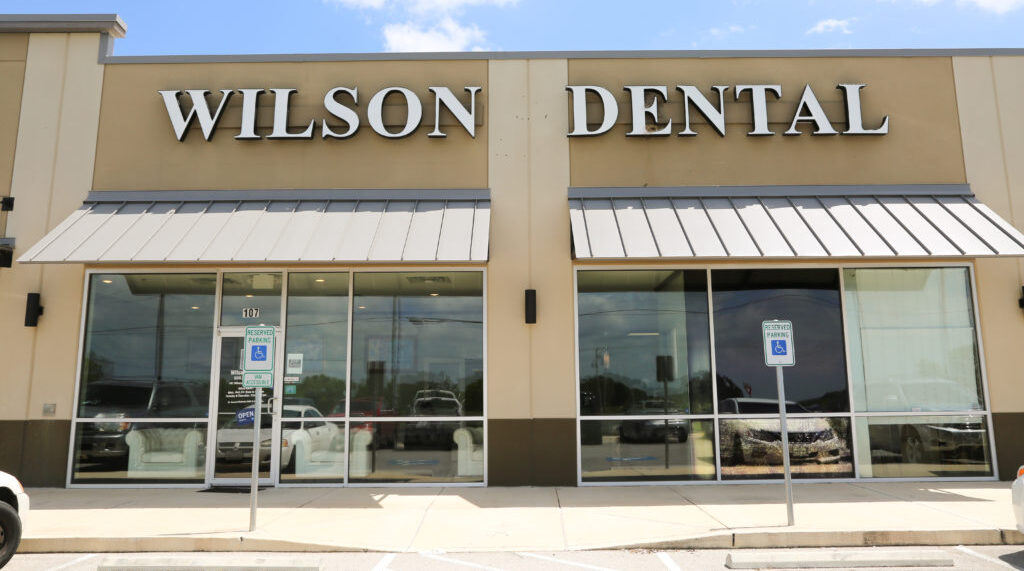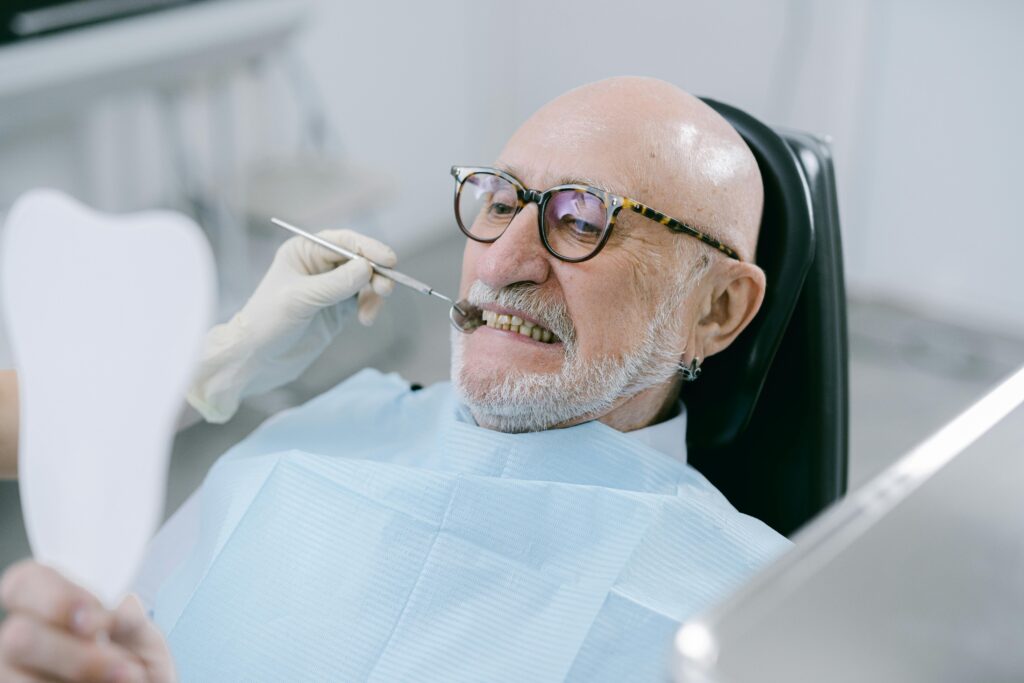Wisdom teeth are the third and final set of molars located at the very back of the mouth. They typically emerge between the ages of 17 and 25, although this can vary from person to person. For some individuals, these teeth can grow in without any issues and coexist peacefully with the rest of their teeth. However, for many others, wisdom teeth can cause significant oral health problems, leading to the need for extraction. Recognizing the signs that you need your wisdom teeth extractions and understanding the importance of the procedure can help protect your overall dental health.
What Are Wisdom Teeth?
Wisdom teeth are the last teeth to develop in the mouth and are located at the back of the dental arch. Most people have four wisdom teeth—two on the top and two on the bottom. Unlike your other teeth, wisdom teeth don’t always follow the same straightforward path when erupting. This irregular development is a leading cause of dental issues that may require extraction.
In many cases, there simply isn’t enough room in the mouth for these new molars to emerge properly. When this happens, the wisdom teeth can become impacted, which means they are trapped beneath the gums or only partially emerge. Impacted wisdom teeth can lead to a wide range of complications, from infections to tooth misalignment.
Signs You Need Wisdom Teeth Extractions
While not everyone needs their wisdom teeth removed, certain symptoms can indicate a problem that necessitates extraction. Here are some common signs that you may need to have your wisdom teeth removed:
1. Pain and Discomfort
One of the earliest and most noticeable signs that your wisdom teeth may need to be extracted is persistent pain or discomfort in the back of your mouth. This pain may come and go initially but can worsen over time as the teeth continue to grow. The discomfort can spread to the jaw, ears, and even the throat.
Pain often occurs when the wisdom teeth become impacted, pushing against surrounding teeth or bone. If left untreated, this can lead to more severe complications such as infection or damage to adjacent teeth.
2. Swollen or Inflamed Gums
Inflamed or swollen gums around the wisdom teeth area are another common sign of trouble. This can occur when the wisdom teeth partially emerge through the gums, creating a flap of gum tissue that can trap food and bacteria. This area, known as a “pericoronal pocket,” becomes a breeding ground for infection, leading to inflammation, tenderness, and swelling.
In more severe cases, an infection can develop, known as pericoronitis. This condition can be extremely painful and may require immediate treatment, often involving the extraction of the problematic wisdom teeth.
3. Jaw Stiffness and Difficulty Opening Your Mouth
As your wisdom teeth begin to grow, they can exert pressure on your jaw, leading to stiffness and discomfort. You may find it difficult to open your mouth fully or experience soreness in your jaw. This is particularly common if the wisdom teeth are impacted and pushing against other structures in the mouth.
Chronic jaw stiffness or pain can affect your ability to eat, speak, and even yawn. If you notice any of these symptoms, it could be a sign that your wisdom teeth are causing issues and need to be evaluated by a dentist or oral surgeon.
4. Bad Breath and Unpleasant Taste
Since wisdom teeth are located at the very back of the mouth, they can be difficult to clean properly. Food particles and bacteria can become trapped in the gums around partially erupted wisdom teeth, leading to bad breath (halitosis) or an unpleasant taste in your mouth. If you’re noticing persistent bad breath despite regular brushing and flossing, it could be a sign that your wisdom teeth are causing an infection or other oral health problems.
5. Cysts or Tumors
In rare cases, impacted wisdom teeth can cause the formation of cysts—fluid-filled sacs that develop around the tooth. If left untreated, these cysts can cause damage to the surrounding bone, teeth, and nerves. In extremely rare instances, tumors can also develop around the impacted teeth. Cysts and tumors require immediate attention, and wisdom tooth extraction is often the first step in treatment.
6. Damage to Surrounding Teeth
When wisdom teeth don’t have enough room to emerge properly, they can push against the neighboring molars, causing them to shift or become misaligned. This crowding can lead to damage to adjacent teeth, making them more susceptible to decay or breakage. If you notice that your teeth seem to be shifting or you experience pain around your other molars, it’s possible that your wisdom teeth are the culprit.
7. Recurring Infections
If you experience recurring infections or gum inflammation around the wisdom teeth area, this is a clear indication that something is wrong. These infections can spread, causing more serious health issues if not treated. If you’re dealing with repeated bouts of gum pain, swelling, or discomfort, it’s important to consult with a dentist who can assess whether extraction is necessary.
Why Wisdom Teeth Extractions Are Important
Wisdom teeth extractions are often necessary to prevent a wide range of complications that can affect not only your oral health but also your overall well-being. Here are a few reasons why timely wisdom tooth removal is so important:
1. Preventing Infection and Inflammation
As mentioned earlier, partially erupted or impacted wisdom teeth can easily trap food and bacteria, leading to painful infections such as pericoronitis. Removing the wisdom teeth eliminates this risk, helping you maintain a healthy, infection-free mouth. Without extraction, these infections can become recurrent, affecting your quality of life.
2. Avoiding Damage to Adjacent Teeth
Impacted wisdom teeth can cause crowding and misalignment, putting pressure on surrounding teeth. Over time, this can lead to damage, decay, or even the need for restorative dental work like crowns or fillings. Wisdom teeth extractions can prevent the unnecessary destruction of healthy teeth and preserve your natural bite.
3. Preventing Jaw and Bone Damage
If left untreated, impacted wisdom teeth can cause the formation of cysts or tumors, which can lead to bone loss or damage to the jaw structure. In extreme cases, this could result in long-term oral health problems that are more difficult to treat. Extracting the wisdom teeth early can prevent the need for more invasive procedures later on.
4. Maintaining Orthodontic Results
If you’ve undergone orthodontic treatment, such as braces, wisdom teeth can threaten the results by pushing your teeth out of alignment as they try to emerge. Removing them can help protect the investment you’ve made in your smile and keep your teeth straight and aligned.
5. Reducing Pain and Discomfort
One of the most immediate benefits of wisdom teeth extractions is the relief of pain and discomfort. Whether it’s jaw pain, headaches, or toothaches caused by impaction, removing problematic wisdom teeth can significantly improve your quality of life.
6. Improving Overall Oral Hygiene
Since wisdom teeth are located at the back of the mouth, they can be difficult to reach and clean. By removing them, you’re reducing the number of hard-to-reach areas, making it easier to maintain good oral hygiene and prevent issues like cavities and gum disease.
Conclusion
may seem daunting, but they are a common and necessary procedure for many individuals. Recognizing the signs that you may need an extraction—such as pain, swollen gums, jaw stiffness, or bad breath—can help you address the issue before it leads to more serious problems. By removing problematic wisdom teeth, you can protect your overall dental health, avoid infections, and ensure that your smile remains healthy and pain-free. If you’re experiencing any of these symptoms, it’s essential to consult a dentist or oral surgeon to determine the best course of action.




